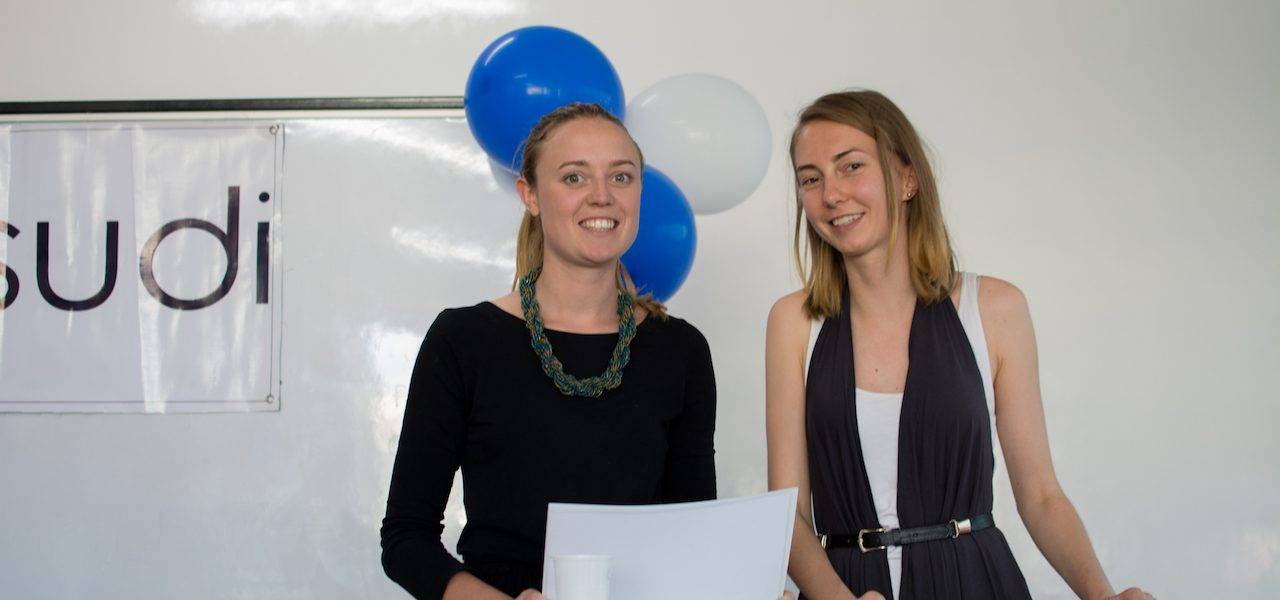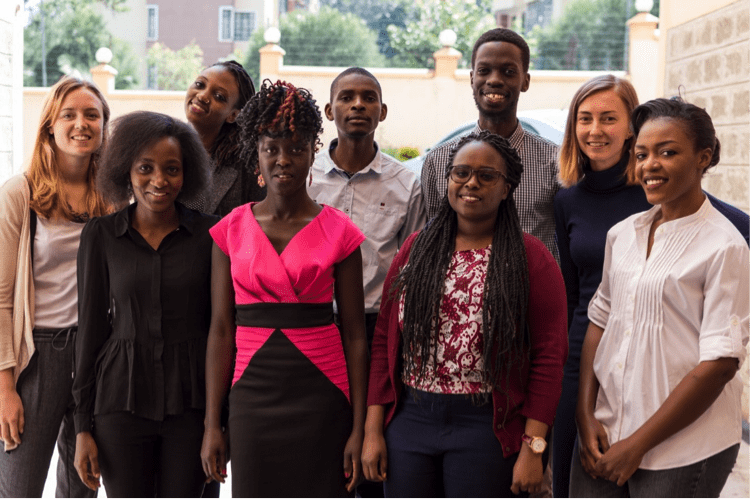Exclusive: Nairobi-Based Youth-Focused Social Enterprise Yusudi Raises USD 250 K

Kenya’s early-stage social enterprise for learning, Yusudi, has raised USD 250 K in grant capital from Global Giving in partnership with Impact Assets and Blue Haven Initiative.
Blue Haven is a family office dedicated to putting wealth to work for competitive returns and positive social and environmental change. The grant was awarded by Blue Haven’s philanthropic arm, which supports interventions that advance the talent ecosystem and encourage human capital innovation across East Africa.
WeeTracker learned from Nastia Gutsol and Charlotte De Ridder, co-founders of the Kenya-based startup, the grant will allow the team to continue designing its personalized blended learning platform, Jijali. During a two-year period, the team will test its career training and mentorship program on 3,600+ new learners while partnering with Busara Center for Behavioral Economics to gather data on the correlation between learner customization and outcomes.
Yusudi aims to produce publicly available research at the close of the pilot, a Blue Haven representative said, “With a surge in the number of education to employment and skill development entities emerging across East Africa, we believe there’s a need for improved transparency and supporting evidence on what factors define an effective demand driven skills training program.”
Blended Learning Platform
The quasi-edtech company’s flagship program is a fully-funded initiative by the Finnish Embassy and Co-op Bank Foundation, tailored to help any keen learner grow their skills to the next level.
The program runs for three months with the target of challenging youths to stand out in the 21st-century market by receiving tutelage in competitive skills such as emotional intelligence, problem-solving, self-learning, and growth mindsets.
Under Jijali, learners can join one of two distinct tracks – entrepreneurship or career starter. The former provides learners with the tools and knowledge that enable them to turn concepts into actual businesses. The latter track trains on how to hone competitive skillsets that employers demand, assisting learners in different ways – from
The former provides learners with the tools and knowledge that enable them to turn concepts into actual businesses. The latter track trains on how to hone competitive skillsets that employers demand, assisting learners in different ways – from applying for a job to landing a permanent offer, as well as growing alongside employers.
Holistic Approach
Yusudi also has the Skills2Grow program in its coffers. The six-month initiative offers driven graduates the ideal opportunity to transition into the job market and start their corporate journeys in the key areas of Business Development and Marketing.
The career accelerator program is a paid avenue for young graduates to step on the first stone of their careers as young professionals. Nastia Gutsol disclosed to WeeTracker that the startup is on the lookout for further funding for both the Skills2Grow and Jijali programs.
Yusudi’s Skills2Grow program provides training for 6 weeks and paid placements for the remaining 5 months – a holistic approach which differentiates it from other learning initiatives.
All the placements are expected to turn into permanent employment after the 5-month probation. The firm does not offer only technical training but also guarantees placement for entry-level vacancies for trainees who can continue with coaching and engagement during the probation period.
The startup charges the trainees for the program with the fee being paid through initial deposit and commissions on their salaries upon placement. The program costs USD 550.00. Trainees can start with a commitment fee as low as USD 150.00, and complete the rest during their placement.
Yusudi has negotiated with the involved firms to pay its trainees no less than USD 160.00 monthly, which is a substantial amount in a market where interns often go home with USD 100.00 every 30 days. Yusudi also supports its’ alumni in negotiating their salaries upon completion of probation time, which may go up to KES 60,000.
Game So Far
According to Nastia, Yusudi reached an agreement with GreenTec Capital Partners in 2018, which entailed the investment firm supporting Yusudi’s learning programs for two years with funding, tech support and organizational development.

In April 2018, WeeTracker reported that Yusudi was among the Kenyan startups that secured nine spots out of eleven, who will be considered for funding to the tune of USD 50 K by Pangea – a platform that connects African startups with international funding and expertise.
In November 2016, Gutsol represented Yusudi at Slush; a global entrepreneurship conference, after winning a pitch competition at the World Bank-supported mLab East Africa. March 2019, Yusudi claimed First Prize in the Xafrique Pitch Competition .
Yusudi was founded on Valentine’s Day in 2016 by Ukranian Nastia Gutsol and Belgian Charlotte De Ridder who both met in Mexico while working for AIESEC.
De Ridder eventually traveled to Kenya and had her Yusudi eureka moment, after which she invited Nastia to join her in launching the company. Within three years, they have trained more than 600 Kenyan youths, while posting an employment rate of over 80% among their alumni.
Note: The article has been updated with the latest course fee and agreement details with Greentec Capital Partner
B